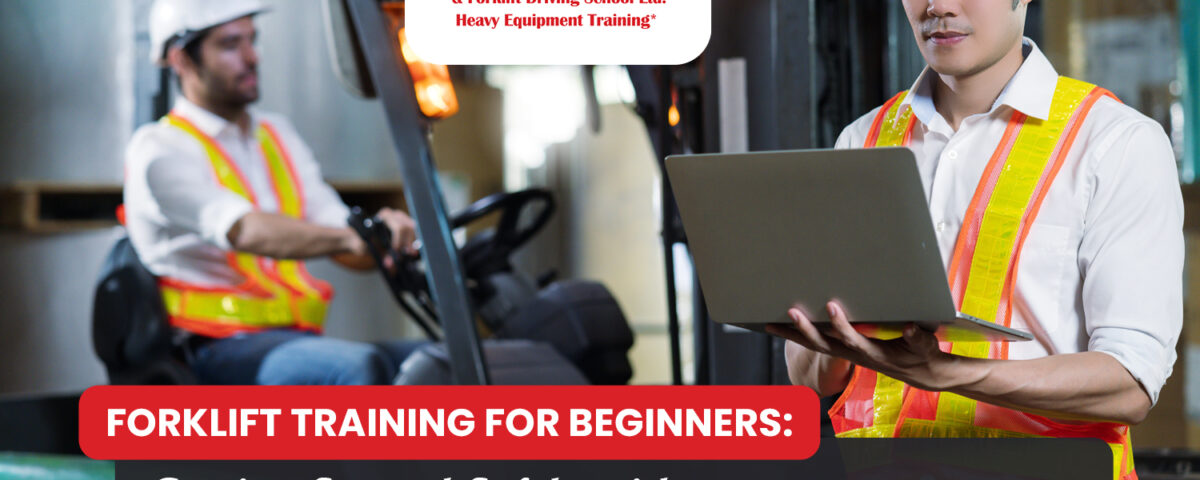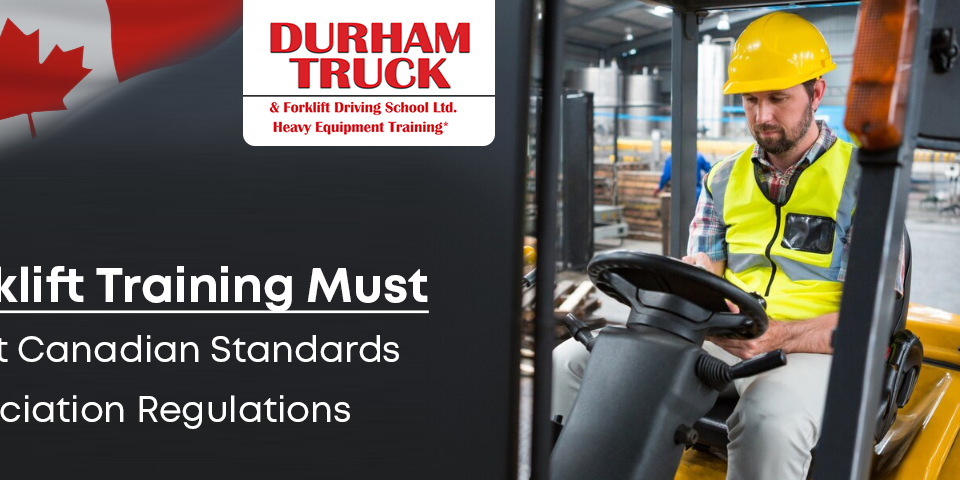Forklift Training for Beginners: Getting Started Safely with Durham Truck and Forklift Driving School Ltd.

Driving Success: The Class D Program at Durham Truck and Forklift Driving School Ltd.
March 28, 2024
How to Obtain Forklift Certification: Step-by-Step Guide
April 30, 2024Introduction:
Forklifts are necessary machines used to move heavy loads in industrial settings. However, operating them requires skill and knowledge to ensure safety in the workplace. Durham Truck and Forklift Driving School Ltd. recognizes the importance of proper training for beginners to operate forklifts safely. In this comprehensive guide, we will read the essentials of forklift training for beginners, focusing on key aspects such as safety protocols, operational techniques, and regulatory compliance.
Understanding the Basics of Forklifts:
Before delving into training specifics, beginners must understand the basics of forklifts. Forklifts are powered industrial trucks equipped with forks to lift and transport materials. They come in various types, including counterbalance, reach trucks, pallet jacks, and rough-terrain forklifts, each designed for specific applications.
Safety First: Importance of Forklift Training:
Safety should always be the top priority when operating forklifts. Accidents involving forklifts can lead to severe injuries, fatalities, and significant property damage. Forklift training for beginners is essential to instill proper handling techniques, hazard awareness, and emergency procedures to mitigate risks.
Durham Truck and Forklift Driving School Ltd. offers comprehensive training programs designed to equip beginners with the necessary skills and knowledge to operate forklifts safely. Our experienced instructors provide hands-on training in a controlled environment, focusing on practical exercises and theoretical understanding.
Key Components of Forklift Training:
- Classroom Instruction:
- Introduction to forklift types and components.
- Understanding operational controls and instruments.
- Overview of safety regulations and guidelines.
- Hazard identification and risk assessment.
- Emergency procedures and accident prevention.
- Practical Training:
- Pre-operational inspections and maintenance checks.
- Maneuvering techniques such as forward, reverse, turning, and stopping.
- Load handling and stacking methods.
- Operating in confined spaces and narrow aisles.
- Proper use of attachments (if applicable).
- Evaluation and Certification:
- Performance assessments to evaluate competency.
- Written examinations to test theoretical knowledge.
- Certification upon successful completion of training.
Operational Techniques for Beginners:
Operating a forklift requires precision and attentiveness. Beginners should adhere to fundamental operational techniques to ensure safety and efficiency:
- Situational Awareness:
- Maintain a clear line of sight while operating the forklift.
- Be aware of pedestrians, other vehicles, and obstacles in the vicinity.
- Use horns and warning signals when necessary.
- Load Handling:
- Assess the weight and stability of the load before lifting.
- Center the load on the forks and secure it properly.
- Tilt the mast slightly backward to stabilize the load during transport.
- Maneuvering:
- Drive at a safe speed, especially when turning or operating in congested areas.
- Use smooth and gradual movements to prevent tipping or load shifting.
- Keep a safe distance from edges, ramps, and uneven surfaces.
Regulatory Compliance:
Forklift operators must attach to relevant regulatory standards and guidelines to ensure workplace safety and compliance. Durham Truck and Forklift Driving School Ltd. emphasizes the importance of regulatory compliance in all training programs, covering aspects such as:
- Occupational Safety and Health Administration (OSHA) regulations.
- Canadian Standards Association (CSA) guidelines (for Canadian operations).
- Workplace safety protocols and procedures.
- Employer-specific policies and requirements.
Conclusion:
Forklift training for beginners is vital to ensuring workplace safety and efficiency. Durham Truck and Forklift Driving School Ltd. is committed to providing comprehensive training programs tailored to the needs of beginners, focusing on safety, operational techniques, and regulatory compliance. By equipping beginners with the necessary skills and knowledge, we aim to promote a culture of safety and excellence in forklift operations. Safety always comes first when operating forklifts, and proper training is the key to success.




